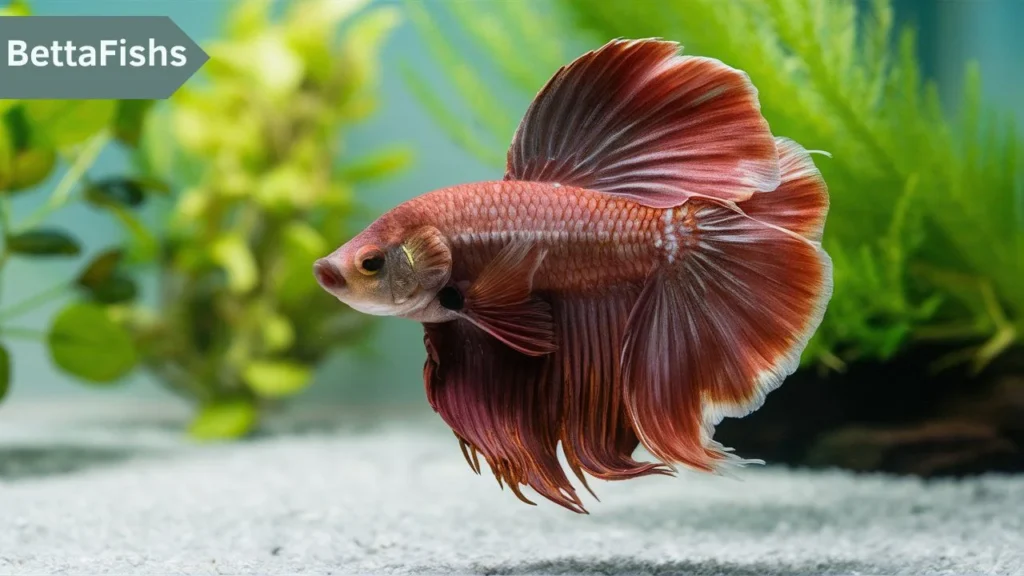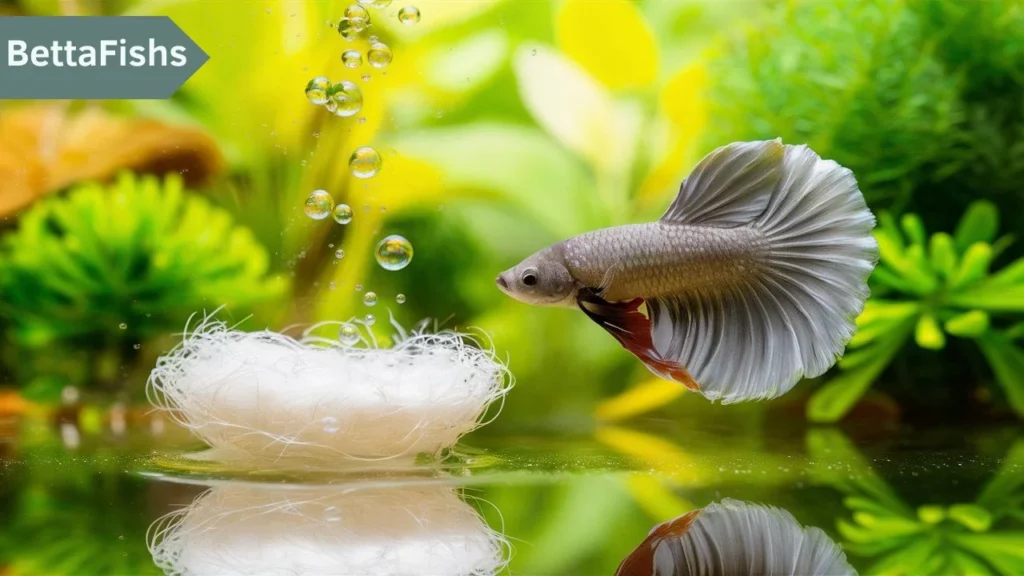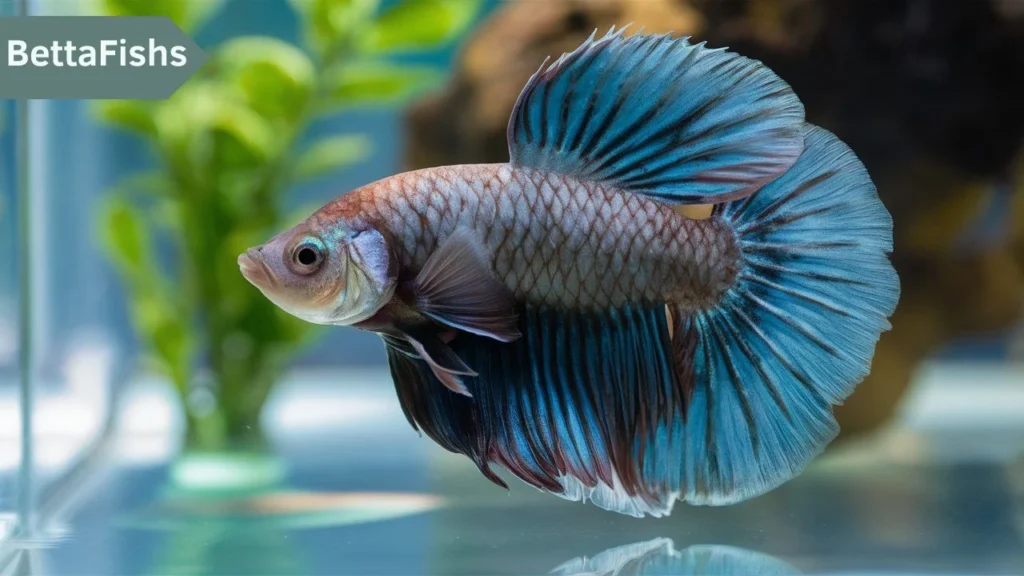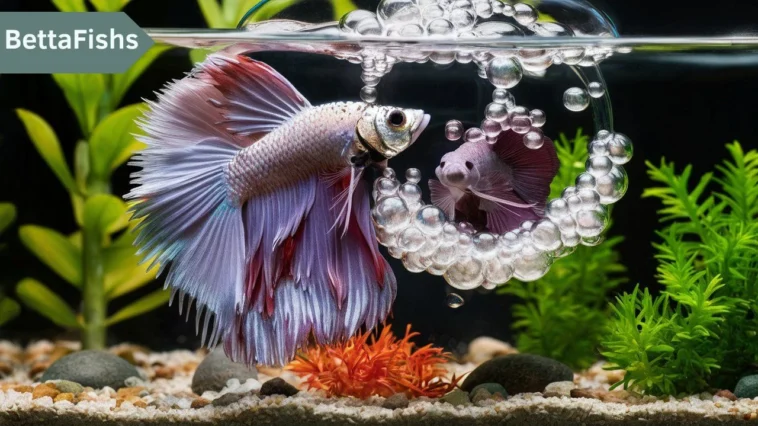If you’re a proud owner of a Betta fish, you might wonder, ” How can I tell if my Betta fish is pregnant? ” Understanding the breeding process and recognizing symptoms of pregnancy in your Betta fish is critical to ensure their health and welfare. In this guide, we’ll walk you through the telltale signs of Betta fish pregnancy, helping you become more attuned to your fish’s needs.
Betta Fish Reproduction
Before diving into the signs of pregnancy, it’s important to understand how Betta fish reproduce. Betta fish, also known as Siamese fighting fish, are known for their vibrant colors and distinct personalities. They reproduce through external fertilization, where the female Betta lays eggs, and the male fertilizes them outside her body.
Betta Fish Breeding Process
Betta fish breeding typically involves a complex courtship dance, where the male displays his fins and builds a bubble nest at the surface of the water. Once the female is ready, she releases her eggs, which the male then fertilizes. Unlike mammals, Betta fish do not experience pregnancy in the traditional sense, as they do not carry live young inside their bodies.
Difference Between Male and Female Betta Fish
It’s crucial to know whether your Betta fish is male or female. Female Betta fish are generally smaller, with less vibrant colors and shorter fins compared to males. Identifying the gender of your Betta fish is the first step in determining if pregnancy is even a possibility.
Signs Your Betta Fish Might Be Pregnant
Though Betta fish don’t get “pregnant” in the traditional sense, there are specific signs that indicate a female Betta is ready to lay eggs or is carrying eggs.
Physical Signs of Pregnancy in Betta Fish
One of the most obvious signs is the appearance of a gravid spot, a darkened area on the female’s abdomen near the ventral fin. This spot is a sign that the female is carrying eggs.
Behavioral Changes in Pregnant Betta Fish
Pregnant Betta fish may exhibit behavioral changes, such as increased shyness or aggression. You might also notice them spending more time near the male Betta’s bubble nest, indicating readiness to lay eggs.
Identifying Female Betta Fish
Knowing how to identify a female Betta fish is key to recognizing pregnancy. Female Betta fish are generally less flashy than their male counterparts, with a rounder body and shorter fins.
How to Differentiate Between Male and Female Betta Fish
To differentiate, look at the body shape and fin length. Males tend to be more slender with longer fins, while females are rounder with shorter fins. Additionally, females often have a small white spot, known as the ovipositor, between their ventral fins, where eggs are released.
Characteristics of a Female Betta Fish
Female Betta fish are typically less aggressive than males, though they can still be territorial. They may display vertical stripes when ready to breed, known as breeding bars, which is another sign that eggs are present.

Gravid Spot: The Most Common Indicator
The gravid spot is a key indicator that your female Betta fish is carrying eggs.
What is a Gravid Spot?
A gravid spot is a dark area located on the abdomen of a female Betta fish, near the base of the tail. This spot darkens as the eggs develop, making it one of the most reliable signs of “pregnancy” in Betta fish.
How to Identify a Gravid Spot on Your Betta Fish
To spot a gravid spot, gently observe your Betta fish from the side. If the area near the ventral fin appears darker than usual, it’s likely your Betta is carrying eggs.
Swollen Belly: A Sign of Pregnancy?
Another sign that your Betta fish might be carrying eggs is a swollen belly.
Causes of a Swollen Belly in Betta Fish
While a swollen belly can indicate that a female Betta fish is carrying eggs, it’s important to rule out other causes, such as constipation or bloating due to overfeeding.
How to Determine if the Swollen Belly is Due to Pregnancy
If the swelling is symmetrical and accompanied by other signs like a gravid spot and breeding bars, it’s likely that the swollen belly is due to eggs. However, if the swelling is uneven or your Betta fish shows signs of distress, it could indicate a health issue.
Egg-Laying Process in Betta Fish
Once your Betta fish is ready to lay eggs, you’ll notice specific behaviors.
Egg-Laying Behavior
Female Betta fish will often swim near the male’s bubble nest when ready to lay eggs. The male will then wrap his body around the female to help release the eggs.
What Happens After Egg-Laying?
After the eggs are laid, the male Betta fish will pick them up in his mouth and place them in the bubble nest, where he will guard and care for them until they hatch.
Behavioral Changes During Pregnancy
Behavioral changes are common in female Betta fish when they are ready to lay eggs.
Increased Aggressiveness or Shyness
A female Betta fish may become more aggressive or, conversely, more reclusive as she prepares to lay eggs. These changes in behavior are normal and indicate that the breeding process is underway.
Nesting Behavior in Female Betta Fish
While it’s typically the male Betta who builds the nest, a female Betta might start inspecting or even contributing to the bubble nest, signaling that she’s ready to lay eggs.

Common Myths About Betta Fish Pregnancy
There are many misconceptions about Betta fish reproduction, particularly regarding the roles of males and females.
Misconceptions About Betta Fish Reproduction
One common myth is that male Betta fish can get pregnant. However, only female Betta fish can carry eggs.
Debunking Myths: Male vs. Female Roles
While the male Betta fish plays a crucial role in the breeding process, it’s the female who carries and lays the eggs. Understanding these roles can help dispel myths and better care for your fish.
Caring for a Pregnant Betta Fish
Proper care is essential for a healthy breeding process.
Ideal Tank Conditions
Ensure the tank is clean and maintain a stable temperature between 78-80°F. Provide plenty of hiding spots for the female Betta to reduce stress.
Feeding Guidelines for Pregnant Betta Fish
A varied diet of high-quality Betta pellets, live or frozen food, can help ensure your Betta fish remains healthy during this time.
Preparing for Fry (Baby Betta Fish)
Once the eggs are laid, it’s important to prepare for the arrival of fry.
Setting Up a Separate Tank for Fry
Consider setting up a separate tank with gentle filtration and plenty of hiding spots for the fry once they hatch.
What to Expect When the Eggs Hatch
Betta fry are tiny and require specialized care. They will remain in the bubble nest for several days until they are ready to swim freely.
How to Help Your Betta Fish During Pregnancy
Providing support during this time is crucial for the health of both the mother and the fry.
Stress Reduction Techniques
Minimize disturbances around the tank and avoid handling the fish unnecessarily.
Monitoring Health and Behavior
Keep a close eye on your Betta fish’s health and behavior, and be prepared to intervene if you notice signs of distress.

When to Seek Help: Complications in Betta Fish Pregnancy
Sometimes, complications can arise during the breeding process.
Signs of Distress in a Pregnant Betta Fish
Look out for signs like lethargy, loss of appetite, or unusual swimming patterns, which could indicate a problem.
Consulting a Vet for Serious Issues
If you notice any severe issues, it’s best to consult a veterinarian who specializes in fish health.
Conclusion
Caring for a pregnant Betta fish requires attention to detail and an understanding of their breeding process. By recognizing the signs of pregnancy and providing the right care, you can help ensure a healthy breeding experience for your Betta fish.
FAQs
How Long is a Betta Fish Pregnant?
Betta fish don’t experience traditional pregnancy, but a female can carry eggs for several days before laying them.
Can Male Betta Fish Get Pregnant?
No, only female Betta fish can carry and lay eggs.
What Should I Do if My Betta Fish is Not Laying Eggs?
Ensure that conditions are ideal for breeding, including proper temperature, clean water, and a suitable environment.
How Can I Tell if My Betta Fish is Ready to Breed?
Look for signs such as a gravid spot, swollen belly, and behavioral changes like increased interest in the bubble nest.
Do Betta Fish Eat Their Fry?
Male Betta fish might eat the fry if they feel threatened, so it’s important to monitor the situation closely.





One Comment
Leave a ReplyOne Ping
Pingback:How can you tell if a Betta fish Is pregnant?